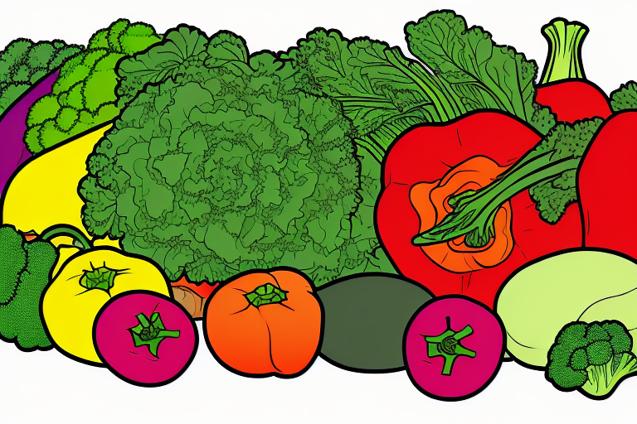
Discover how to make sustainable food choices for long sailing trips, reducing your environmental impact while still enjoying delicious and nutritious meals on your adventure.
Sustainable Food Choices for Long Sailing Trips
As you embark on your sailing adventure with your family, one of the most important aspects to consider is the food you’ll bring on board. Not only do you want to ensure that you have enough provisions to last the duration of your trip, but you also want to make choices that are environmentally responsible and sustainable. In this article, we’ll explore various sustainable food choices for long sailing trips, as well as tips for reducing waste and minimizing your environmental impact.
Table of Contents
- Why Sustainable Food Choices Matter
- Sustainable Protein Sources
- Sustainable Fruits and Vegetables
- Sustainable Grains and Legumes
- Eco-Friendly Snacks and Treats
- Reducing Waste and Packaging
- Storing and Preserving Food
- Conclusion
Why Sustainable Food Choices Matter
When you’re living on a boat and exploring the world, it’s essential to be mindful of the impact your choices have on the environment. The food you consume plays a significant role in your ecological footprint, as the production, transportation, and disposal of food all contribute to greenhouse gas emissions, deforestation, and water pollution. By choosing sustainable food options, you can help reduce your impact on the planet and support a healthier ecosystem for future generations.
Sustainable Protein Sources
Protein is a crucial component of any diet, and there are several sustainable options to consider for your sailing adventure:
Plant-Based Proteins
Plant-based proteins, such as beans, lentils, and tofu, are an eco-friendly alternative to animal-based proteins. They require less water and land to produce and generate fewer greenhouse gas emissions. Some options to consider include:
- Canned or dried beans and lentils: These are versatile and can be used in a variety of dishes, such as soups, stews, and salads.
- Tofu and tempeh: These soy-based products are high in protein and can be used in stir-fries, sandwiches, and other dishes.
- Nut butters: Almond, peanut, and cashew butter are all great sources of protein and can be used as spreads or in recipes.
Sustainable Seafood
If you prefer to include seafood in your diet, opt for sustainably sourced options. Look for certifications such as the Marine Stewardship Council (MSC) or Aquaculture Stewardship Council (ASC) to ensure that the seafood you’re consuming is responsibly harvested and has minimal impact on the environment. Some sustainable seafood choices include:
- Pole-caught tuna: This method of fishing reduces the risk of bycatch and is more environmentally friendly than other methods.
- Wild-caught salmon: Choose salmon from well-managed fisheries to ensure that stocks are not being depleted.
- Sardines and anchovies: These small fish are lower on the food chain and reproduce quickly, making them a more sustainable option.
Sustainable Fruits and Vegetables
Incorporating a variety of fruits and vegetables into your diet is essential for maintaining good health. When selecting produce for your sailing trip, consider the following:
Seasonal and Local Produce
Choose fruits and vegetables that are in season and grown locally whenever possible. This reduces the transportation emissions associated with your food and supports local farmers. Visit farmers’ markets or local grocery stores to find the freshest, most sustainable options.
Organic Produce
Organic farming practices are generally more environmentally friendly than conventional methods, as they avoid the use of synthetic pesticides and fertilizers. Look for organic produce when shopping for fruits and vegetables, and consider growing your own herbs and greens on board your boat.
Sustainable Grains and Legumes
Grains and legumes are staple foods that provide essential nutrients and energy. Opt for sustainable options such as:
- Whole grains: Brown rice, quinoa, barley, and whole wheat pasta are all eco-friendly choices that provide more nutrients than their refined counterparts.
- Ancient grains: Millet, spelt, and farro are less common grains that are often grown using sustainable practices.
- Legumes: As mentioned earlier, beans and lentils are not only great sources of protein but also have a lower environmental impact than many other foods.
Eco-Friendly Snacks and Treats
Snacking is inevitable on long sailing trips, so be prepared with sustainable options:
- Dried fruits and nuts: These are nutritious, non-perishable, and have a lower environmental impact than many other snack foods.
- Homemade granola bars or energy bites: Make your own snacks using eco-friendly ingredients like oats, nuts, and dried fruits.
- Dark chocolate: Choose chocolate with a high cocoa content and look for certifications like Fair Trade or Rainforest Alliance to ensure that it’s produced ethically and sustainably.
Reducing Waste and Packaging
Minimizing waste is an essential aspect of sustainable living. Here are some tips for reducing waste on your sailing trip:
- Buy in bulk: Purchase items like grains, nuts, and dried fruits in bulk to reduce packaging waste.
- Use reusable containers: Store food in reusable containers instead of disposable plastic bags or single-use packaging.
- Avoid single-use items: Bring reusable utensils, plates, and cups instead of disposable options.
Storing and Preserving Food
Proper food storage and preservation are crucial for reducing waste and ensuring that your provisions last throughout your sailing adventure. Some tips include:
- Use airtight containers: Store dry goods in airtight containers to keep them fresh and prevent spoilage.
- Refrigerate or freeze perishables: If you have access to refrigeration or a freezer on board, use it to store perishable items like fruits, vegetables, and proteins.
- Preserve food: Learn how to can, pickle, or dehydrate food to extend its shelf life and reduce waste.
Conclusion
Sustainable food choices are an essential aspect of living an eco-friendly lifestyle on your sailing adventure. By selecting environmentally responsible options and reducing waste, you can minimize your impact on the planet and enjoy a healthier, more fulfilling journey. Bon voyage!